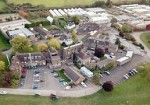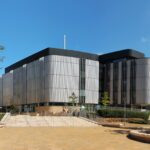SoCoBio Student’s expectations and experiences
Starting a PhD can be daunting – building relationships, getting used to a new environment and starting your research. SoCoBio is a new DTP programme. Our first cohort of students started in October 2020. In addition to the usual challenges of starting something new our students have also had to adapt to new challenges brought on by the current health pandemic.
Two months after starting and half-way through their first rotation project we asked students to tell us about their expectations and experiences since starting their PhD journey. Here are accounts from five students located across our DTP partner institutions:
Letitia McMullan (2020 Student, USusx)
I was thrilled to be offered a SoCoBio DTP studentship, and my excitement to get started definitely kept me motivated through the final year of my undergraduate degree earlier this year. Over the Summer, as it came closer to moving to Sussex and getting started on my first rotation, I naturally started to feel more nervous about moving to a new place and starting something new. However, these nerves were eased by the regular zoom drop in sessions with the DTP management board and contact with my supervisor. I was also then made to feel very welcome on my arrival in Brighton, through a range of online social events organised by the DTP Management Team, Sussex school of psychology and my lab group.
So far, most of my first rotation has been focused on developing the foundation skills that I would need to successfully complete my full PhD project in this lab if I chose it as my final project. For example, I have been working on obtaining my Home Office personal licence to work with mice, learning in vivo techniques such as aseptic cranial window surgery and 2 photon microscopy, and in vitro techniques such as acute slice electrophysiology. I have also been developing my computer programming and statistical analysis skills using software like R and MATLAB.
What has come as the biggest surprise to me in this rotation, is the amount of time and flexibility it takes to get series of experiments up and running. I have come to realise that when investigating a new research question, you cannot simply base the way everything is done on the methods of previous papers and start collecting data that could be included in a paper straight away, but rather that often a lot of preliminary experiments to try different approaches and generate preliminary data are required.
I also feel I have learned a lot from the DTP’s Data Management Training Module. As someone with relatively little experience in data analysis and computer programming, I feel it has been hugely beneficial to learn about the different types of tools available and how to use them. I look forward to making the most of this, and the other great opportunities offered by the DTP, throughout the rest of my PhD!
Steven Houghton (2020 Student, USoton)
Starting a PhD during the current pandemic has been interesting and somewhat challenging but there have not been major barriers that have prevented me from getting stuck in to my first rotation project. My first rotation is at the University of Southampton with Mariana Vargas-Caballero studying a splice variant of the NMDA receptor subunit GluN2A, named GluN2AS. This project follows on nicely from my master’s year and subsequent summer internship, so I have not had the somewhat daunting task of learning the lab and research project. I am currently living with my partner and her father, meaning that the commute to and from campus has been somewhat time consuming and has required me to learn time organisation skills rapidly to work effectively. However, it is great that I can come into University to perform experiments safely before returning to home for office-based working. The training that has been provided by both the DTP and the University has been great and I have been able to fit this training around my research project. So far, I have attended courses and webinars on data carpentry, Microsoft Word tricks for writing a thesis and becoming a demonstrator. I have also had the opportunity to visit the University of Sussex to learn a new technique which I have begun implementing at the University of Southampton. I am excited yet anxious to start my second rotation as this will be in a lab with a team that I have not been exposed to before
Liam Jones (2020 student, USoton)
The experience for myself has been slow paced so far, due to the impact of COVID. I have come from working in industry for a few years which is quite structured relative to academia. Though one of the attractions of pursuing a PhD for me was the increased autonomy which has given me an opportunity to gain experience and improve my project management skills in addition to the prospect of improving a number of technical skills. For the most part, I have been working from home which has been challenging at times but having weekly lab meetings and seminars online have helped. My PhD project is an industry sponsored project which was also attractive to me for the cross-disciplinary nature of the project and I have appreciated the different perspectives offered by my supervisory team and have had the opportunity to attend a number of online conferences which have been good networking and learning opportunities. The training from the SoCoBio has been really good and is a nice refresher for myself as I previously have a little experience with R statistics from my MSc, though I have gained an increases appreciation of its potential uses. I anticipate my lab work will pick up in January once a few pieces of equipment have been purchased, which I have been discussing/planning with my supervisory team.
Klaudia Piotrovska (2020 student, Uport)
Starting a PhD at any time is challenging let alone in the middle of a pandemic. I am very fortunate and have been given an opportunity to work on a project I am truly passionate about. I have been part of the same lab group since my master’s degree and already knowing what members of our group specialise in gave me a head start when it came to learning new techniques and getting training in the required project area. A safe working environment has been created at Portsmouth by the appropriate measures that have been put in place and thankfully the research hours have not been impacted. Undertaking laboratory work is a very pleasant experience; I have already collected meaningful data and contributed to smaller research projects within the group. The way SoCoBio DTP is organised has allowed me to form collaborations with researchers from partner institutions and meet many students working in different research areas.
David Fisher (2020 Student, NIAB-EMR)

My first rotation project has been based at NIAB EMR looking at the effects of genotype and pre-harvest environment on the nutritional content of strawberries. Research projects and commercial services at EMR have continued to operate throughout the pandemic, so in the grand scheme of things the scope and quantity of work I have been able to engage with since joining in October hasn’t been badly affected. There have been times where lab work has been delayed due to restrictions on numbers/space in the lab, but keeping each other safe is the priority and as there has also been plenty of work to do outside of the lab, the measures in place haven’t impeded the progress myself and my supervisors set out to make over the course of the rotation.
My supervisory team, Eleftheria Stavridou (NIAB EMR), Guy poppy and Jenny Baverstock (University of Southampton) have been excellent in helping me to get started and settled into the rotation. We planned to engage with different aspects that would be involved in the full PhD project in order for me to gain a range of experience and skills, whilst also getting a good feeling for what it would be like to work on the full project. We have met regularly (virtually) to discuss plans and progress throughout the rotation, which has allowed me to soak up a lot of very good advice relating both to this specific project but also how to approach a PhD in general. During my time at EMR I have had the opportunity to engage with a blend of predominantly lab work analysing micronutrient content in strawberries, scenario/trade analysis in relation to the UK’s supply of key micronutrients and visualisation of a strawberry mapping population using networking tools in R.
The crop science and production systems team I have joined at EMR have also been very welcoming and have helped me with lab training and just generally getting settled in. Whilst at this point I think most of us are comfortable with virtual meetings being the new norm, It’s been very refreshing to have had the opportunity to meet and work with other members of the team in person (masks on and adhering to social distancing, of course!), largely made possible by the measures in place at EMR which so far seem to have been effective in mitigating the potential spread of COVID-19.



